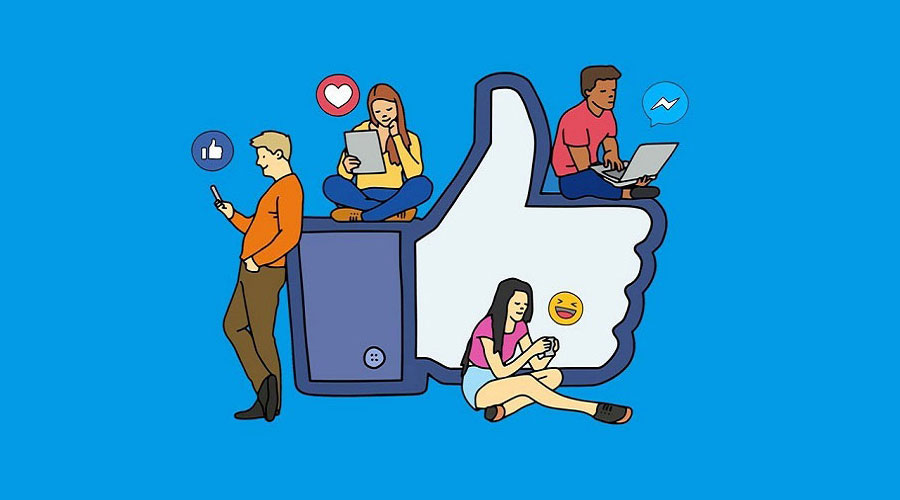|
Getting your Trinity Audio player ready...
|
Writes Washington Nyanjowa
Humans need to socialize, and in today’s technologically advanced age, social media is employed as a tool for this purpose. Our mental health and happiness are greatly impacted by our social interactions. Being socially linked to people can improve your life by reducing stress, anxiety, and depression, boosting self-esteem, bringing comfort and joy, and avoiding loneliness. Teenagers use socialization as a gauge of their own value and intelligence, who you are depends on the people you are linked to. Your mental and emotional health may be seriously compromised if you don’t have many close friends. There are a lot of benefits to utilizing social media, but this article will concentrate more on the risks associated with teenage social media usage.
Teens rely on and spend most of their time on social media platforms such as WhatsApp, Facebook, Twitter, Snapchat, Tik Tok, YouTube, and Instagram to find and connect with each other. Social media platforms are designed to bring people closer together, spending too much time engaging with social media can actually make young teenagers lonelier and more isolated—and exacerbate mental health problems such as anxiety and depression. There is a strong link between heavy social media and an increased risk for depression, anxiety, loneliness, self-harm, and even suicidal thoughts.
The Psychological Impact of social media Abuse
Negativity towards one’s looks or self. Teens may feel insecure about their appearance or the events in their own life even though many of the photographs they see on social media are edited. People rarely post about their lowest points or most vulnerable times on social media; instead, they typically only share the highlights of their lives. Even still, it doesn’t make you feel any less envious or dissatisfied when you go through a friend’s status updates of a fun occasion in their lives.
Fear of losing out and addiction to social media. Social media platforms like Instagram and Facebook seem to amplify perceptions that others are more fun or have better lives than you do. The perception that you’re missing out on certain things can affect your self-esteem, cause anxiety, cause you to use social media more, and even cause addiction. In recent years, WhatsApp has emerged as the most often overused social media tool. Teenagers who are addicted to social media may be compelled to take up their phones frequently.
Isolation. Increased social media use or addiction reduces feelings of isolation and encourages antisocial behavior. Reducing your social media use can really boost your general wellbeing and make you feel less lonely and alone.
Cyberbullying. Teens who post content on social media run the risk of publishing intimate images or extremely personal stories due to their impulsive natures. Teenagers may experience bullying, harassment, or even blackmail as a result of this. Teenagers frequently post online without thinking about privacy or these repercussions. Twitter and other social media platforms can serve as hubs for the dissemination of damaging rumors, lies, and abuse that can cause long-lasting emotional scars. The victim and tormentor roles become interchangeable as a result of persistent bullying since the victim will eventually turn into
Self-absorption. Teenagers who post endless photos and all of their private thoughts to social media platforms risk developing unhealthy self-centeredness and cutting themselves apart from real-world relationships.
Both anxiety and depression. Teenagers’ mental well-being depends on face-to-face interaction. Making eye contact with a caring person is the fastest and most efficient way to alleviate stress and improve your mood. Teenagers are more susceptible to acquiring or worsening mood disorders like anxiety and sadness as they emphasize social media contact over in-person relationships.
What can be done to protect the teenagers?
If a parent notices that their adolescent is exhibiting anxiety or depressive symptoms as a result of using social media, they must immediately seek the assistance of a qualified therapist. If depression is not treated, it can result in other dysfunctional behaviors or even suicide.
There are steps that a parent can take to encourage responsible use of social media and limit some of its negative effects.
Putting boundaries limits. Talk to your teen about how to avoid letting social media interfere with his or her activities, sleep, meals, or homework. Encourage a bedtime routine that avoids electronic media use, and keep cellphones and tablets out of teens’ bedrooms. A parent can achieve this by role-playing and giving self-time to interact with their child with phones away.
Monitor your teen’s accounts. As a parent let your teen know that you’ll be regularly checking his or her social media accounts. Do not totally take control of the accounts but a regular check has to be followed through.
As a responsible parent, you should discourage your teen from gossiping, spreading rumors, bullying, or damaging someone’s reputation on social media platforms. Discuss with the teen about what is appropriate and safe to share on social media.
Give your teen enough time for socializing face-to-face with friends and peers. Face-to-face contact is particularly important for teens vulnerable to social anxiety disorder.
Give your child time to talk about what he or she likes most on social media including their most fears. Give your own personal view about what your child has said do this in a non-judgmental way.
Washington Nyanjowa is Intern Psychologist: Great Zimbabwe University






